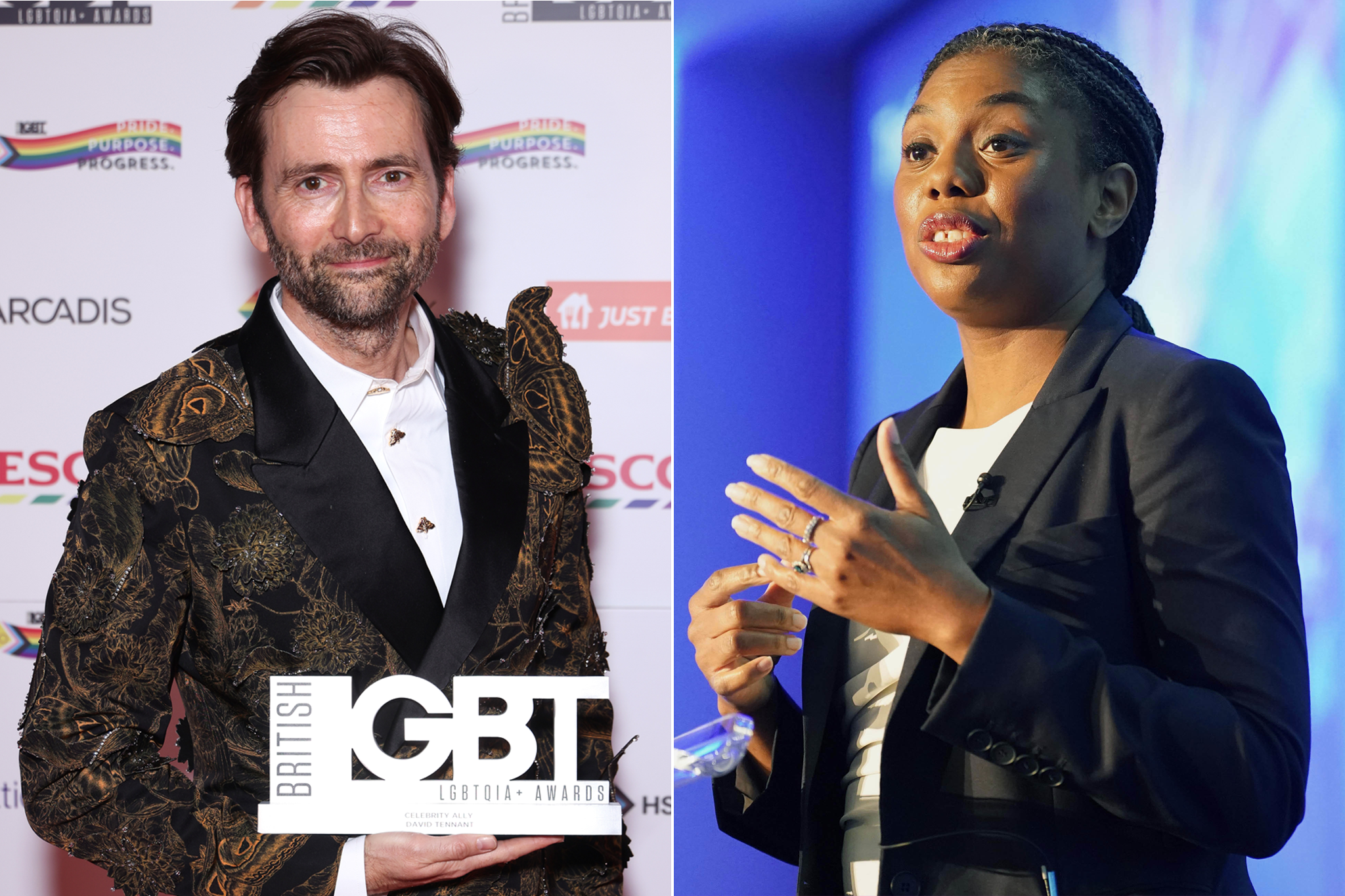Celebrities on politics: do they make a difference?
After actor David Tennant exchanged insults with Kemi Badenoch, John Rentoul looks at famous faces who have spoken out on politics


David Tennant suggested that Kemi Badenoch shouldn’t “exist any more” in his acceptance speech at the British LGBT+ Awards last week, adding: “I don’t wish ill of her, I just wish her to shut up.”
Badenoch, the business secretary and equalities minister, responded on Twitter/X: “I will not shut up.” She called him “a rich, lefty, white male celebrity so blinded by ideology he can’t see the optics of attacking the only black woman in government”.
On Wednesday the prime minister waded into the exchange, saying: “If you’re calling for women to shut up and wishing they didn’t exist, you are the problem.”
Tennant arguably made a fool of himself; he would have been better advised to focus on his eloquent defence of trans rights, which was political enough without being personal-political. Badenoch was entitled to hit back, and did so tellingly. But Mr Sunak didn’t need to get involved: how does the prime minister attacking one of the most popular actors in the country advance the Conservative cause?
What other celebrities have pitched in?
An even bigger celebrity intervention than Tennant’s was JK Rowling’s broadside in The Sunday Times against Keir Starmer for “abandoning” women. “As long as Labour remains dismissive and often offensive towards women fighting to retain the rights their foremothers thought were won for all time, I’ll struggle to support them,” she wrote.
As for positive endorsements in the 2024 election campaign, Gary Neville, the footballer, featured in a Labour election broadcast, walking and talking with Starmer in the Lake District. Imelda Staunton, who played the Queen – the very monarch who was upstaged by Tony Blair in The Queen – has put her name and face to Labour fundraising emails.
Bob Geldof recorded an unusual video tribute to Andrew Mitchell, the minister for international development.
And Holly Valance, the actor who played Felicity Scully in Neighbours, claims to have helped to persuade Nigel Farage to return as leader of Reform UK, and to stand for parliament.
Do celebrities shift votes?
Of course they do, or else parties wouldn’t put so much effort into wooing them. The classic recent example is Marcus Rashford, whose campaigns on free school meals and child poverty twice changed government policy. He was described by Boris Johnson in a double-edged compliment as a more effective leader of the opposition than Starmer.
Other celebrities have been less successful in influencing policy, but have added lustre and credibility, usually to parties that are already doing well, such as New Labour in the period before and immediately after the 1997 election.
Others still have failed to save losing campaigns. Tracey Ullman made a rather good music video with Neil Kinnock in 1987, and he lost that election and the next one too. “Grime for Corbyn”, which included Stormzy, were not quite enough to push Labour over the line in the 2017 election – and by the following election Stormzy had gone off the Labour leader.
Attacks by celebrities tend to be less than wounding, however. In the 1980s, Red Wedge was a whole movement of young people’s music protesting against the iniquities of Margaret Thatcher’s government: The Specials, Madness, Billy Bragg and Paul Weller all performed on their tours. But in the end she was brought down by the poll tax, not pop concerts.



Join our commenting forum
Join thought-provoking conversations, follow other Independent readers and see their replies
Comments